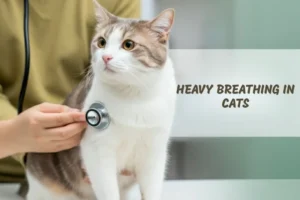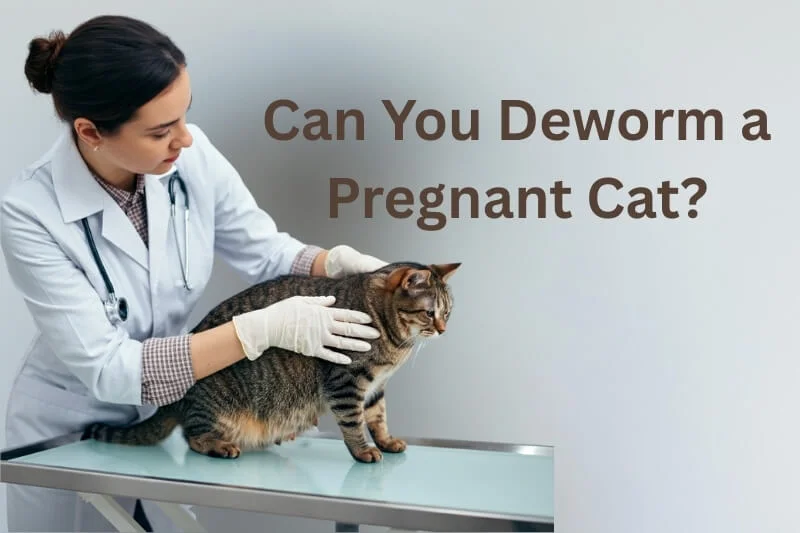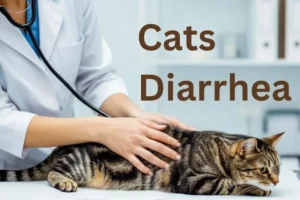
Can You Deworm a Pregnant Cat? A Complete Safety Guide

If you’re wondering, “Can you deworm a pregnant cat?”, you’re facing a concern shared by countless cat owners. Pregnancy brings joy, but it also raises important questions about your feline friend’s health care, particularly when dealing with parasites. The good news is that you can deworm a pregnant cat, but it’s important to do so only with your veterinarian’s guidance and with medications that are safe for pregnant cats.
Managing parasites during pregnancy is important for your cat and her kittens. If worms aren’t treated, they can cause problems like malnutrition, anemia, and even pass infections to the kittens. This guide will help you understand how to safely deworm a pregnant cat, identify potential risks, and prevent future issues.
Table of Contents
Understanding Worm Risks in Pregnant Cats
Worms are internal parasites that live in a cat’s digestive system, feeding off nutrients from the food your cat consumes.
Parasitic worms pose significant threats to pregnant cats and their developing kittens. Common intestinal parasites include roundworms, hookworms, tapeworms, and whipworms, each presenting unique challenges during pregnancy.
- Roundworms: These are long, spaghetti-like worms often found in the intestines of both adults and kittens. They are the most common intestinal parasite in cats.
- Hookworms: Tiny, thin worms that stick to the intestinal wall and consume blood, which may result in weakness and anaemia.
- Tapeworms: Flat, segmented worms that are usually transmitted when a cat ingests infected fleas or rodents. Segments may show up in your cat’s faeces or around their anus like grains of rice.
- Whipworms: These big intestine parasites are less frequent but always pose a risk because they can result in weight loss and diarrhoea.
HEALTH IMPACTS ON MOTHER CATS
Pregnant cats infected with worms are prone to numerous health hazards that have the potential to jeopardize their health as well as the outcomes of their pregnancies. The presence of such a heavy parasite load may result in severe malnutrition due to the competition between parasites and the mother for vital nutrients that should be used for the fetus’s development.
Anemia represents another significant concern, particularly in cases of hookworm infestation. These blood-sucking parasites can cause significant blood loss, leaving pregnant cats weak and unable to support healthy fetal growth. The combination of pregnancy demands and parasite-induced anemia can prove life-threatening without prompt treatment.
RISKS TO DEVELOPING KITTENS
Worm infestations don’t just affect mother cats; they directly threaten unborn kittens through multiple transmission pathways. Roundworm larvae can cross the placental barrier, infecting kittens before birth. This prenatal transmission means kittens may be born already carrying parasites, giving them a disadvantaged start in life.
RECOGNIZING SYMPTOMS
Identifying worm infestations in pregnant cats requires careful observation, as symptoms can be subtle or absent entirely. Visible signs include seeing actual worms in feces or vomit, which appear as white, rice-like segments (tapeworms) or spaghetti-like strands (roundworms). However, many cats show no obvious symptoms despite harboring significant parasite loads. Symptoms may also appear similar to those experienced during normal pregnancy changes; therefore, a professional veterinary examination is necessary for the accurate diagnosis of these signs.
Safe Deworming During Pregnancy
- THE IMPORTANCE OF VETERINARY CONSULTATION
Never attempt to deworm a pregnant cat without professional veterinary guidance. Many over-the-counter dewormers contain ingredients that may harm developing fetuses or cause pregnancy complications.
Veterinarians possess the expertise to evaluate your cat’s health status, assess pregnancy stage, and determine the safest treatment approach. They will take into account the kind of parasites that have been found, the extent of infestation, gestational age, and her general health condition as well. - SAFE DEWORMING MEDICATIONS
Several deworming medications have established safety records for use in pregnant cats, though a veterinary prescription remains mandatory for all treatments.
Fenbendazole stands as the most widely recommended option for pregnant cats. Take help from your veterinarian immediately if your pregnant cat experiences severe symptoms such as persistent vomiting, diarrhea, lethargy, or distress following deworming. While serious reactions are rare with approved medications, prompt veterinary attention ensures the best outcomes.
Pyrantel pamoate offers another safe alternative, particularly effective against roundworms and hookworms. This medication works by paralyzing parasites, allowing them to be naturally eliminated through the digestive system. While generally safe during pregnancy, veterinary supervision ensures proper dosing and timing.
Praziquantel requires more careful consideration during pregnancy. While effective against tapeworms, its use is typically reserved for severe infestations where the benefits outweigh the potential risks. Most veterinarians prefer avoiding praziquantel during pregnancy unless absolutely necessary. - MEDICATIONS TO AVOID
Several common deworming ingredients pose risks to pregnant cats and should be avoided entirely. These include certain benzimidazoles, organophosphates, and combination products containing multiple active ingredients. To avoid harmful interactions or overdosing, always inform your veterinarian about any recent medications your cat has taken. - OPTIMAL TIMING FOR TREATMENT
Deworming is safest before pregnancy begins, reducing parasite risks for both mother and kittens. If pre-breeding deworming isn’t possible, the best time for treatment is after the first trimester, once major organ development is complete. Early pregnancy is more sensitive, so medication use is typically avoided unless there’s a severe infestation. Then, your vet will weigh the risks and benefits on a case-by-case basis. Deworming in late pregnancy (around days 40–50) may also be recommended to help prevent transmission to nursing kittens. This timing allows for the treatment of reactivated larvae that could otherwise be passed to nursing kittens.
Prevention Strategies for Pregnant Cats
The most effective method of parasite control in pregnant cats is prevention. Putting thorough prevention plans to the test saves cats in the present and future in your home.
ENVIRONMENTAL MANAGEMENT
Maintaining a clean environment significantly reduces the risk of exposure to parasites. Daily litter box scooping removes potential contamination sources, while weekly thorough cleaning with disinfectants eliminates parasite eggs and larvae. Choose pregnancy-safe cleaning products to avoid exposing expectant mothers to harmful chemicals.
Outdoor access presents numerous risks from parasites, including contaminated soil and infected prey animals. Consider restricting outdoor access for pregnant cats or providing supervised outdoor time in secure enclosures. This approach protects against not only parasites but also other pregnancy-related risks like accidents or fights with other animals.
FLEA CONTROL
Since certain tapeworm species use fleas as intermediary hosts, preventing fleas is crucial to overall parasite control. Use veterinary-approved flea prevention products specifically labeled as safe for pregnant cats. Many common flea treatments contain ingredients that could harm developing fetuses, emphasizing the importance of professional guidance.
Regular flea prevention also benefits newborn kittens, who are particularly vulnerable to flea-transmitted diseases and anemia. Maintaining a flea-free environment from pregnancy through weaning provides optimal protection for the entire feline family.
ISOLATION OF NEW ANIMALS
New cats or kittens should undergo quarantine and parasite screening before introduction to pregnant cats. This protocol prevents the introduction of new parasite strains to your household and protects vulnerable pregnant cats from additional health stressors. Quarantine periods typically last 2-3 weeks, allowing time for health assessments and any necessary treatments.
Monitoring After Deworming Treatment
Post-treatment monitoring ensures the effectiveness of deworming while watching for potential side effects. De-worming solutions are generally safe for most cats; however, they can affect pregnant cats more severely than others because hormonal changes and pregnancy are normal during this time.
- COMMON SIDE EFFECTS
Mild side effects from approved dewormers include temporary loss of appetite, mild vomiting, or loose stools. Due to the medication’s ability to eliminate parasites from the body, these symptoms typically subside within 24 to 48 hours. However, pregnant cats require closer monitoring due to their increased nutritional needs and physiological stress.
Let your veterinarian know immediately if your pregnant cat experiences severe vomiting, excessive diarrhea, poor movement, or distress after deworming. Early veterinary care offers the best prognosis to the mother and kittens.
- FOLLOW-UP TESTING
Many veterinarians recommend follow-up fecal examinations 2-4 weeks after deworming to confirm the treatment’s success. This testing verifies the elimination of parasites and identifies any resistant organisms that may require alternative treatments. For pregnant cats, confirming treatment success before delivery helps protect newborn kittens from parasite transmission.
Caring for Kittens and Preventing Transmission
Effective parasite management extends beyond treating the mother cat to include comprehensive kitten care protocols. Understanding transmission pathways helps implement prevention strategies that protect entire litters.
- PRENATAL AND NURSING TRANSMISSION
Kittens can acquire parasites before birth, as roundworm larvae may cross the placental barrier. Larvae in the mother’s tissues can activate during pregnancy and lactation, transferring to kittens via milk feeding.
This complex transmission cycle means that even successfully dewormed mother cats may still pass parasites to their offspring. Understanding these pathways highlights the importance of treating both mothers and kittens in accordance with veterinary protocols.
- KITTEN DEWORMING PROTOCOLS
Newborn kittens typically begin deworming protocols at 2-3 weeks of age, continuing every 2-3 weeks until 12-16 weeks old. Early treatment targets parasites transmitted in utero or through nursing, preventing heavy infestations that could prove life-threatening to developing kittens.
Your veterinarian will design specific protocols based on the local prevalence of parasites in your area, the mother cat’s history of parasites, and individual risk factors. Consistency in following these protocols ensures optimal protection during the vulnerable early weeks of life.
- LONG-TERM PREVENTION
Establishing long-term parasite prevention protocols protects cats throughout their lives. Regular fecal examinations, appropriate deworming schedules, and environmental management create comprehensive protection systems. For breeding cats, pre-breeding health assessments and parasite treatment help ensure healthy pregnancies and litters.
Conclusion
Successfully managing parasites in pregnant cats requires balancing the treatment benefits against potential risks to both mothers and their developing kittens. While the question “Can you deworm a pregnant cat?” has a positive answer, safe implementation demands professional veterinary guidance, appropriate medication selection, and careful timing considerations.
Prevention remains your most powerful tool, from pre-breeding health assessments to environmental management and comprehensive kitten care protocols. You can protect present and future generations of cats from parasite-related health issues by collaborating closely with your veterinarian to create suitable prevention measures.
Every cat’s needs are different. Personalized treatment, regular checkups, and prompt care are essential to successfully safeguard pregnant cats and their kittens from parasites.
Frequently Asked Questions (FAQ)
Can you give a pregnant cat dewormer?
Specific medications approved for use during pregnancy under veterinary supervision. Never use over-the-counter dewormers or medications not specifically prescribed for pregnant cats.
Is it safe to deworm a pregnant cat in the first trimester?
First-trimester deworming requires a careful evaluation of the risks versus the benefits. It is generally safer to wait until after major organ development is complete.
What are the safest dewormers for pregnant cats?
Fenbendazole (Panacur) represents the most widely recommended option, with pyrantel pamoate serving as another safe alternative. These medications have established a safe record when used under veterinary guidance.
How do I know if my pregnant cat has worms?
Many cats show no obvious symptoms despite significant parasite loads. Visible signs include seeing worms in feces or vomit, unexplained weight loss, dull coat, lethargy, or abdominal distension.
What happens if I don't treat worms in my pregnant cat?
Untreated parasite infestations can cause malnutrition, anemia, and immune system suppression in mother cats. Kittens face risks of prenatal infection, poor development, and life-threatening infestations after birth.
When should newborn kittens be dewormed?
Cats are usually dewormed when they are two to three weeks old, and continue every 2-3 weeks until the kitten is 12-16 weeks old. This schedule addresses parasites transmitted before birth or through nursing. Your veterinarian will provide specific protocols based on local parasite prevalence and individual risk factors.




